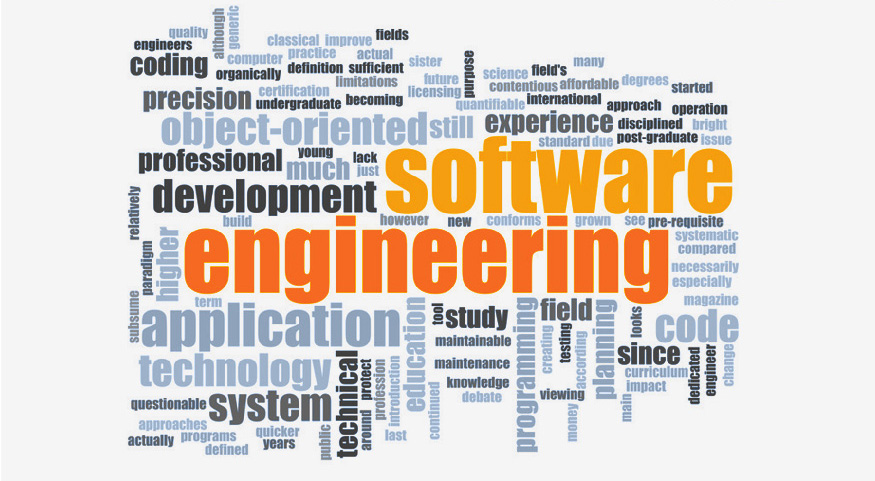Software engineering is a dynamic and ever-evolving field that encompasses a wide range of subfields, each focusing on specific aspects of software development and technology.
Whether you are a beginner exploring career paths or an experienced professional looking to specialize, understanding these subfields can help you identify the right niche. In this article, we will discuss some common subfields within software engineering to provide clarity and guidance.
1. Front-End Development
Front-end development focuses on the user interface (UI) and user experience (UX) of software applications. This subfield involves designing and developing the visible parts of websites and apps that users interact with.
Key Responsibilities:
- Creating responsive web designs.
- Ensuring compatibility across browsers and devices.
- Writing code using HTML, CSS, and JavaScript frameworks such as React or Angular.
Required Skills:
- Proficiency in web design tools.
- Strong understanding of UI/UX principles.
- Knowledge of front-end testing tools.
2. Back-End Development
Back-end development deals with the server-side logic, databases, and APIs that power software applications. This subfield ensures that the application functions correctly behind the scenes.
Key Responsibilities:
- Developing server-side code.
- Integrating databases and APIs.
- Optimizing application performance.
Required Skills:
- Programming languages like Python, Java, Ruby, or PHP.
- Database management systems such as MySQL or MongoDB.
- Familiarity with cloud services and server management.
3. Full-Stack Development
Full-stack developers have expertise in both front-end and back-end development. They can build complete software applications, making them highly versatile professionals.
Key Responsibilities:
- Designing and implementing end-to-end solutions.
- Managing project workflows.
- Troubleshooting issues across the stack.
Required Skills:
- Mastery of both front-end and back-end technologies.
- Strong problem-solving abilities.
- Knowledge of DevOps practices.
4. DevOps Engineering
DevOps engineering focuses on bridging the gap between development and operations teams. The goal is to enhance collaboration, automate workflows, and ensure smooth software deployment.
Key Responsibilities:
- Automating software deployment pipelines.
- Monitoring and maintaining system infrastructure.
- Implementing continuous integration and delivery (CI/CD).
Required Skills:
- Proficiency in tools like Docker, Kubernetes, and Jenkins.
- Understanding of cloud platforms such as AWS or Azure.
- Strong scripting skills.
5. Mobile Application Development
Mobile developers specialize in creating applications for mobile devices, including smartphones and tablets. This subfield is divided into native app development and cross-platform development.
Key Responsibilities:
- Building mobile apps for Android, iOS, or both.
- Testing and debugging mobile applications.
- Ensuring app performance and security.
Required Skills:
- Expertise in Swift (iOS) or Kotlin (Android).
- Familiarity with cross-platform tools like Flutter or React Native.
- Knowledge of mobile UI/UX principles.
6. Data Engineering
Data engineering involves designing and maintaining the infrastructure required for data collection, storage, and analysis. This subfield plays a crucial role in supporting data scientists and analysts.
Key Responsibilities:
- Developing data pipelines.
- Ensuring data quality and security.
- Integrating data from various sources.
Required Skills:
- Knowledge of big data technologies like Hadoop and Spark.
- Proficiency in SQL and Python.
- Understanding of ETL (Extract, Transform, Load) processes.
7. Cybersecurity
Cybersecurity focuses on protecting software systems and data from unauthorized access, attacks, and vulnerabilities. This subfield is critical as cyber threats continue to rise.
Key Responsibilities:
- Conducting security audits and risk assessments.
- Implementing security protocols and tools.
- Responding to security breaches and incidents.
Required Skills:
- Knowledge of encryption techniques and security frameworks.
- Proficiency in tools like Wireshark and Metasploit.
- Understanding of ethical hacking and penetration testing.
8. Artificial Intelligence and Machine Learning
AI and machine learning engineers create systems capable of learning and making decisions based on data. This subfield is at the forefront of innovation in technology.
Key Responsibilities:
- Designing machine learning models.
- Training and evaluating algorithms.
- Implementing AI solutions in real-world applications.
Required Skills:
- Proficiency in Python and libraries like TensorFlow or PyTorch.
- Strong foundation in statistics and mathematics.
- Knowledge of natural language processing (NLP) and computer vision.
9. Software Testing and Quality Assurance (QA)
Software testers and QA professionals ensure that software products meet quality standards before release. This subfield focuses on identifying and fixing bugs and improving software reliability.
Key Responsibilities:
- Writing and executing test cases.
- Conducting performance and usability testing.
- Reporting and tracking issues.
Required Skills:
- Familiarity with testing tools like Selenium and JIRA.
- Knowledge of manual and automated testing techniques.
- Strong attention to detail.
10. Game Development
Game development involves designing and creating interactive games for various platforms, including PCs, consoles, and mobile devices. This subfield combines creativity with technical expertise.
Key Responsibilities:
- Developing game mechanics and storylines.
- Coding game engines and scripts.
- Collaborating with designers and artists.
Required Skills:
- Proficiency in programming languages like C++ or C#.
- Experience with game engines like Unity or Unreal Engine.
- Strong creative and problem-solving skills.
Conclusion
Software engineering is a diverse field with numerous subfields, each offering unique challenges and opportunities. By understanding what are some common subfields within software engineering, you can choose a specialization that aligns with your interests and career goals.
Whether you’re passionate about creating user-friendly interfaces, building robust back-end systems, or exploring cutting-edge technologies like AI, there is a place for everyone in software engineering.
Ready to dive deeper into a specific subfield? Explore opportunities and resources to elevate your skills today!
